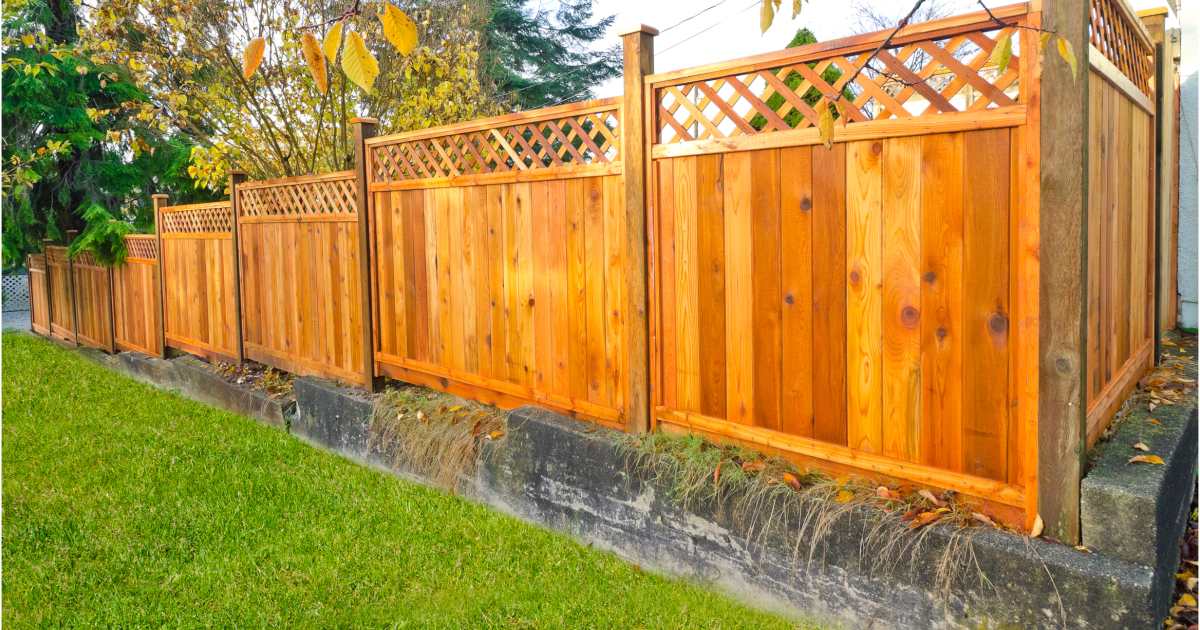Featured

When taking into consideration setting up a fence on your home, among one of the most vital steps is to understand whether you need a license. Fencing installations often need an authorization to ensure that the framework follows local zoning legislations, constructing codes, and security standards. The details permits needed can vary relying on your location, the kind of fencing you prepare to install, and the height or positioning of the fence. Here's a guide to help you browse the procedure of getting a fencing license and make certain that your setup is convenient and legal.
Why You Required an Authorization for a Fence Installment. The authorization process aids local authorities validate that your fencing does not interfere with traffic exposure, respect your residential or commercial property lines, or violate elevation limitations. Setting up a fence without an authorization can result in fines, elimination of the fence, or hold-ups in construction, so it's important to check whether an authorization is required before starting your project.
Kinds of Permits You Might Need. There are a couple of typical kinds of licenses you may require for a fencing installment:
Building License. A building permit is one of the most usual license needed for fencing installations. This permit guarantees that the fencing satisfies safety standards and is built according to regional building ordinance. A building authorization is typically required if the fence surpasses a certain height (frequently 6 feet), is made of specific materials, or lies near a public walkway or roadway.
Zoning Authorization. A zoning license might be called for to validate that your fencing complies with neighborhood zoning legislations. Zoning policies can determine where a fencing can be positioned on your property, exactly how high it can be, and whether it is enabled in specific locations (such as along building lines or ahead yards) Some districts have laws restricting the height of fences in the front lawn to make certain presence for pedestrians and motorists.

Setback Authorization. You might require a trouble authorization if you are building a fencing near your residential or commercial property line or close to a road. A setback describes the range a framework, consisting of fences, have to be from the residential property line. Obstacle guidelines vary by location, and guaranteeing that your fence is put appropriately can stop disputes with next-door neighbors and prevent infractions.
House Owner Association (HOA) Authorization. If you live in a neighborhood controlled by a House owner's Association (HOA), you may need authorization from them in enhancement to local authorizations. HOA policies typically cover the sort of products, elevation, design, and color of fencings. Also if your regional federal government does not call for a license, your HOA may still have details guidelines that need to be adhered to.
Exactly How to Use for a Fencing Authorization. To look for a fencing permit, you'll require to call your regional building department or planning workplace. The application procedure generally includes submitting a type, paying a fee, and sending a site plan of your building that reveals the proposed location of the fence. You might likewise need to consist of information about the products, elevation, and layout of the fence.
In some situations, a local official may require to check your residential property prior to authorizing the authorization. As soon as the authorization is approved, you will certainly be licensed to proceed with your fence installation.
When Is a License Not Needed? In specific circumstances, a license may not be needed. These situations can include:
Reduced Elevation Fences: In many areas, fences that are below a certain elevation (frequently 3 to 4 feet) might not need an authorization, specifically if they are placed in the yard or other non-visible areas.
Fence Replacement: If you're changing an existing fence with the same height and material, some locations may not need a brand-new permit.
Non-Obtrusive Fencings: Ornamental or short-term fences, such as those made use of for horticulture or landscaping objectives, might not need permits as long as they are reduced and not long-term.
However, it is necessary to consult your local zoning workplace or building department, as guidelines can differ by jurisdiction.
Repercussions of Not Acquiring a License. Failing to acquire the required authorizations can bring about significant consequences. These consist of fines, compelled elimination of the fence, or even hold-ups in building and construction. Furthermore, if your fence doesn't satisfy neighborhood regulations, you can encounter lawful problems with neighbors or neighborhood authorities.

Final thought. When setting up a fence, it's vital to research the permit needs in your area. By making certain that you follow local policies and obtain the needed authorizations, you can guarantee and prevent costly blunders that your fence is legally certified. Check with your neighborhood structure department, HOA, and zoning office to identify what licenses are required for your specific fence task. This action is crucial to secure both your investment and your residential or commercial property's value.
Latest Posts
Bath Fitter’s Custom Bathtubs: A Seamless Bathroom Transformation
Published Nov 23, 24
2 min read
How to Storm-Proof Your Roof
Published Nov 23, 24
3 min read
Vision Center South
Published Nov 23, 24
1 min read